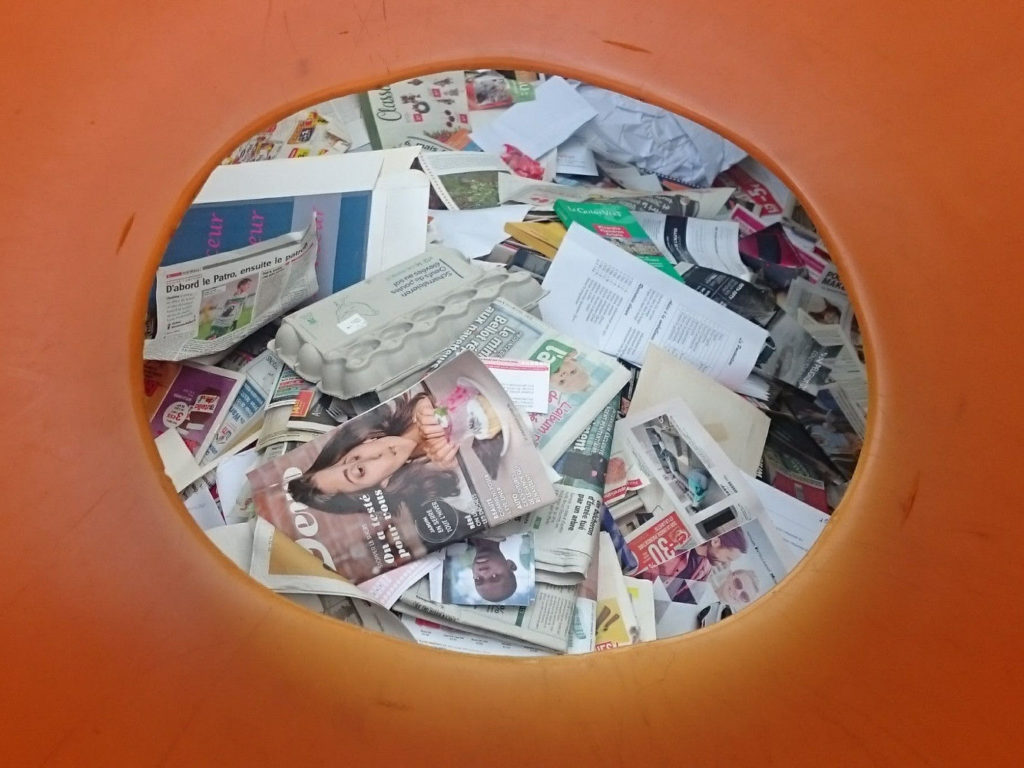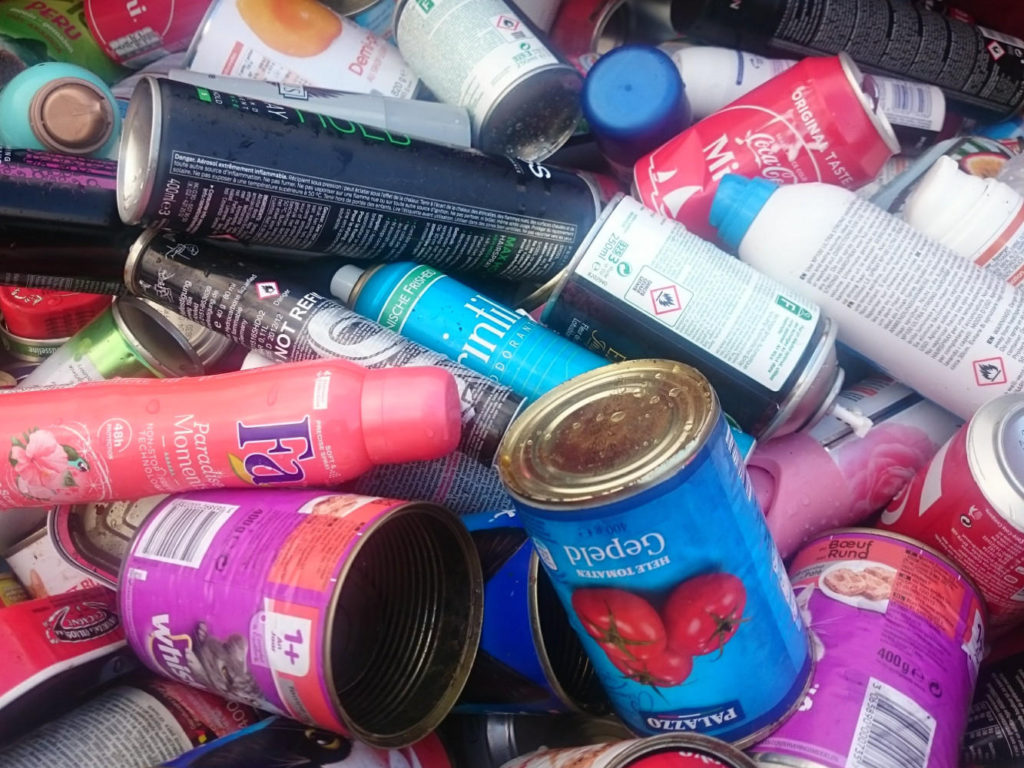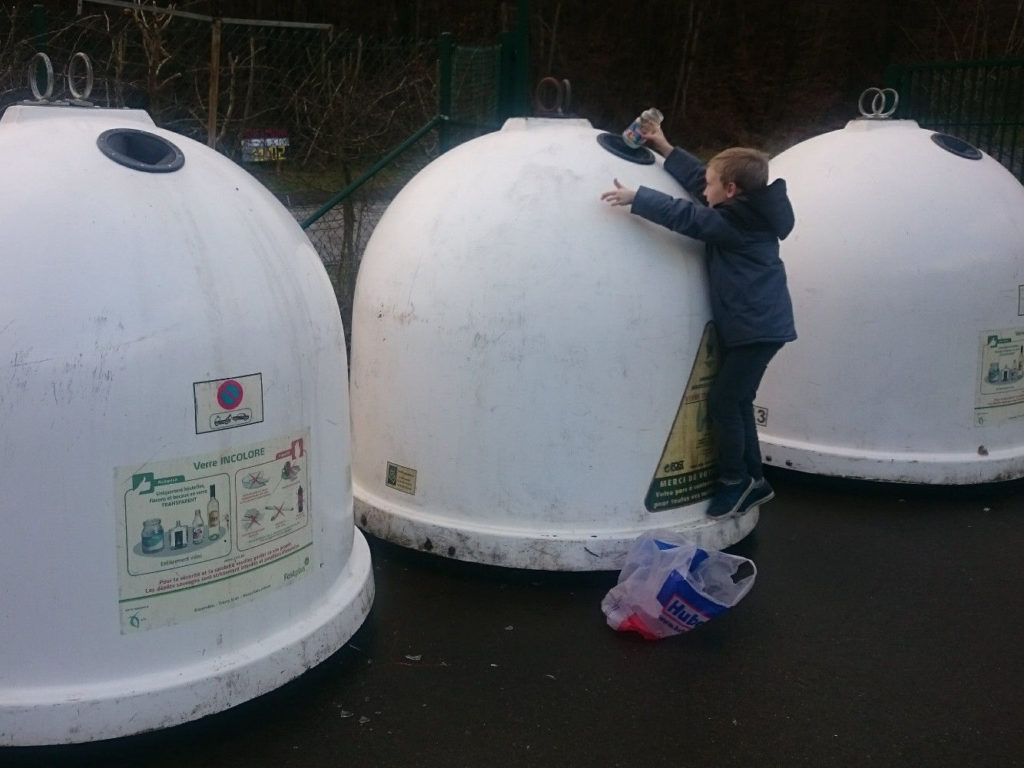Since January 1, 2018, China has decided to block the importation of many categories of waste. China is also the world's first recycling plant after being the world's first manufacturing plant! This decision poses many problems both in our countries and there. Analysis of the facts!
A Chinese waste import ban suffered and sudden
Since January 1, Beijing has blocked the import of 24 categories of solid waste, certain plastics, papers and textiles… This measure ban had been announced only six months earlier by Beijing during a WTO congress. The reasons given are ecological: China must treat more and more its own waste with the increase in Chinese living standards!
Six months is a very short timeframe, both industrially and politically, no one has had time to adapt and this may cause some concerns in the months, or even years, to come!
Indeed, American and European industries had become accustomed to having their waste treated in China, in large, very large, volumes. The economic reasons are quite simple. There is the reduced treatment cost in China, strong demand for Chinese raw materials and less restrictive environmental standards than in Europe or the USA. Also the container ships, filled with Chinese products, could be more profitable during their return trip to China ... Since China exports much more than it imports finished products!
This ban therefore disrupts the global waste market, which has very little time to turn around. European and American manufacturers must therefore adapt… and quickly… very quickly…

Arnaud Brunet, director of the Brussels-based International Recycling Office (BIR), is saddened:
“It's an earthquake, we still have the shock wave. This has put our industry under stress because China is quite simply the world's leading market for the export of recyclable materials ”
And rightly says that:
“Treatment capacities do not move like that overnight, in the immediate future the accumulation of waste, especially in Europe, is a major risk. "
The consequences of the ban here ... and in China
The European Union exports half of its 85% sorted plastics to ChinaSo, it is more than 40% of the sorted European waste which has, today, no more openings! The United States has sent 2016 more than half of its exports of non-ferrous metal scrap, paper and plastics, or 16,2 million tons.
Thus the immediate impact will be significant, according to "cautious" estimates by the BIR, world exports of paper to China could plunge by a quarter between 2016 and 2018 and those of plastics collapse by 80% in two years, from 7,35 to 1,5 million tonnes. That's as many millions of tonnes to be processed… elsewhere!
This ban also poses a problem for Chinese recycling companies used to very large imported volumes that will not be offset immediately by internal volumes in China.
Thus Hangzhou Jinglian, owner of a plastic waste processing company, Huizhou Qingchun explains that:
"It will become difficult to work, more than half of our raw material is imported and production will therefore be reduced by at least a third"
He specifies that he recently had to part with a dozen employees.

Relocate relocation?
What would be the alternatives for rich countries? Arnaud Brunet suggests relocating relocation:
"We will look for alternative solutions, try to identify new substitute markets, assuming that they have the processing capacities: we are talking about India, Pakistan or Cambodia"
With as "disaster scenario" but highly probable, the solution that this waste is incinerated or placed in landfill. In Germany, very waste sort, the first effects are already visible less than a month after the ban.
In addition to Atlantic: Brandon Wright, spokesperson of the NWRA, the American Federation of Waste and Recycling Explain :
"Factories are looking at how to store their extra waste and some are storing it on car parks or at outside sites"
Nevertheless some have already taken the lead, as well Brent Bell, an executive at Waste Management, North America's leading household waste recycler, says:
"We have been working for years to develop in India, Vietnam, Thailand, and even Latin America. The recent investments of several American paper manufacturers allow us to move waste to these alternative markets quickly "
Adapt and improve our current treatment systems?
But relocate relocation is it a solution so sustainable and econological that it?
Since the ban case could very well happen elsewhere! The sustainable and econological solution would not it be to adapt our own recovery, sorting, recycling and waste treatment capabilities ? Especially in France where the " Energy recovery ", Understand incineration, has been widely favored for decades compared to our direct European neighbors (Belgium, Germany, Switzerland ...). Of course, we should also work at the source: that is to say to try to reduce the volume of waste! This decision may be a chance for industries in develop their treatment processes and better value resources ! This is the way to go according to us!
Thus the European Union unveiled on Tuesday, but very late, its strategy to reduce the use of single-use plastics, with the objective that all packaging of this type will be recyclable by 2030.
Frans Timmermans, First Vice-President of the European Commission, rightly explains that:
"We should use this decision to challenge ourselves and ask ourselves why we Europeans are not able to recycle our own waste"
Indeed only 30% of Europeans' plastic waste is recycled at present. The rest ends up incinerated to produce energy (39%) or in landfill (31%).

A chance for European waste recovery industries
The opportunity therefore presents itself today to boost the reprocessing sectors and create new sustainable and ecological jobs! So Belgian entrepreneurs propose via Les Echos :
"Let's reverse the flow and develop a plastic waste processing industry in Belgium in general and in Wallonia in particular. Sorting technologies are improving. We can now sort most types of plastic used in packaging. Let's invest in state-of-the-art sorting centers, as well as recycling factories in the Walloon Region and Brussels.
Let us become the “smart trash can” of Europe. By treating ourselves not only these 424.000 tonnes of plastics, but also part of the flows from other developed countries now refused by China. That is to say, part of these 7 million tonnes today blocked or on the move. Let's go one step further: today, large waste streams of the PMC (Plastics, Metals, Cardboard) type leave Belgium for Germany or the Netherlands, where they are better sorted and recycled. Let's build the ad hoc installations in Wallonia to reverse this trend as well ”
The opportunity could also allow to develop new technologies for treatment or recovery of waste, as the converting plastic into fuel. Indeed ; projects of "plastic to fuel" conversion have been in the boxes for a few years!

Well, there is more than that! Let's just hope that some do not take advantage of this ban to legitimize a strong increase (lasting it!) In household waste collection costs… but nothing is less certain!Christophe Martz. Photos DR.
